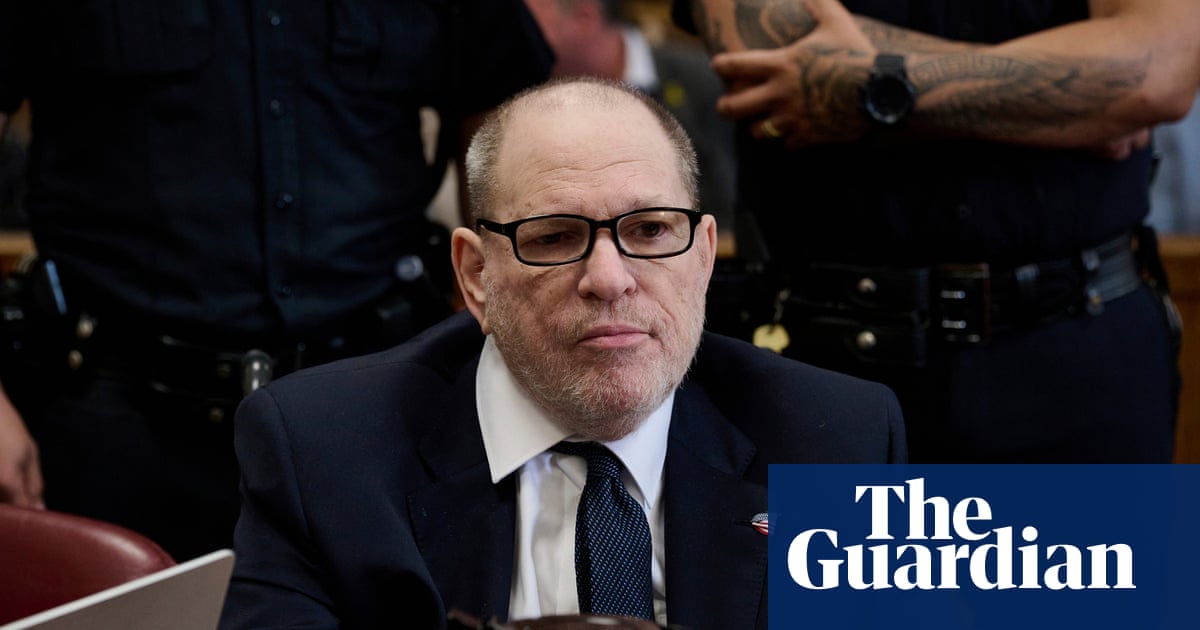A woman who allegesHarvey Weinsteinforced oral sex on her broke down under intensely personal cross-examination during her fourth day on the witness stand in the criminal retrial of the disgraced movie mogul.
The judge paused proceedings early on Friday afternoon to give Miriam Haley a chance to compose herself after an angry and tearful exchange with Weinstein’s defense as she was questioned on her account of his alleged assault.
Haley alleges that Weinstein assaulted her in July 2006 after inviting her to his apartment to, as she put it, “just stop by and say hi” but that he then backed her into a bedroom and pushed her on to a bed, holding her down as he ignored her pleas of: “No, no – it’s not going to happen.”
As she was being challenged on her account while on the stand on Friday, by the defense lawyer Jennifer Bonjean, Haley raised her voice.
“He was the one who raped me, not the other way around,” Haley told jurors about Weinstein.
Bonjean shot back: “That is for the jury to decide.”
Haley, 48, responded: “No, it’s not for the jury to decide,” her voice growing louder as tears began streaming down her face and adding: “It’s my experience. And he did that to me.”
The judge, Curtis Farber, promptly halted questioning and sent jurors out of the courtroom for a short break. Haley left the stand and did not look at Weinstein as she left the courtroom through a side door. After a brief break, the trial resumed.
Weinstein is being retried on charges of rape, which he denies. An appeals court last year overturned his conviction at his original trial inNew Yorkin 2020.
Haley, who has also gone by the name Mimi Haleyi, is the first of three women who have accused Weinstein, 73, of sexually assaulting them and are expected to testify at the retrial.
Haley and two of her friends previously testified that she told them soon after the 2006 encounter that Weinstein had sexually assaulted her. She maintains she was never interested in any sexual or romantic relationship with Weinstein, despite his past overtures, but wanted his help getting jobs in show business.
Zeroing in on the alleged assault, Bonjean on Friday questioned why Haley would agree to go to Weinstein’s apartment after what the witness described as previous “bizarre” and “overwhelming” behavior, including his barging into her home weeks earlier as he sought to persuade her to go on a trip to Paris with him.
Haley said she didn’t have a reason to turn down Weinstein’s request to stop by his apartment and said she didn’t fear for her safety, even after his earlier outburst.
“It wasn’t a big deal,” she testified. “I go to people’s houses all the time.”
Haley broke down as Bonjean asked her about the clothing she wore to the apartment. She wasn’t certain what clothing she was wearing but maintained that Weinstein was the one who took them off. The witness has said that Weinstein also removed her tampon before forcibly performing oral sex on her.
Before Haley broke down, Bonjean underscored through questioning that before the alleged assault, Haley agreed to take a flight at Weinstein’s expense fromNew Yorkto Los Angeles to attend a movie premiere. The trip was the day after the alleged assault.
“Did you just think he was just being generous?” Bonjean asked.
Haley said she had accepted partly because she wanted to “get back in his good books” after turning down the Paris invitation, and the Los Angeles trip seemed more appropriate because she would be traveling on her own and could also visit a friend there.
“You wanted to appease him, make him happy, make him like you?” Bonjean asked, suggesting the arrangement was a “win-win” for Haley.
“Well, that, too,” Haley told the court.
Haley testified on Thursday that a few weeks after the alleged assault, she agreed to meet Weinstein at a Manhattan hotel. She said she expected to talk in the lobby but was instead directed to his room, where she says she had unwanted, but not forced, sex with him.
Weinstein’s retrial includes charges related to Haley and another accuser from the original trial, Jessica Mann, who alleges a 2013 rape. He is also being tried, for the first time, for allegedly forcing oral sex on former model Kaja Sokola in 2006.
The three witnesses for the prosecution have given permission to the Associated Press be publicly identified.
